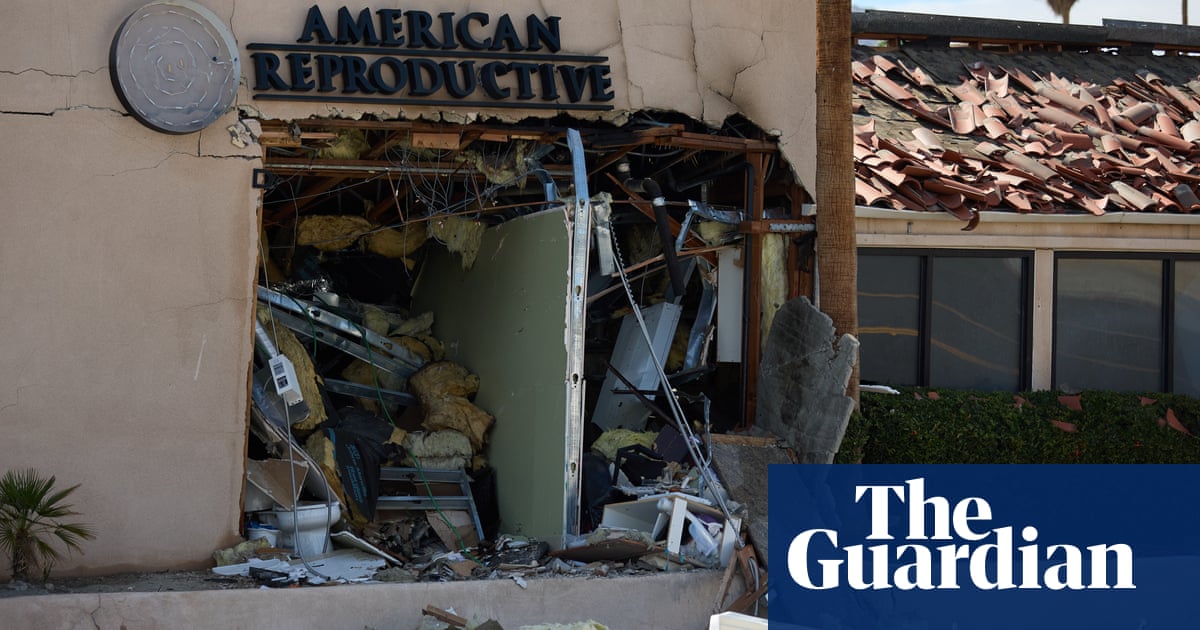The recent car bomb incident outside a fertility clinic in Palm Springs, California, has left the community in shock and sadness. FBI investigators have identified the suspect, a 25-year-old named Guy Edward Bartkus, as the individual believed to have detonated the bomb, resulting in his own death and injuries to four others. This tragic event raises numerous questions and concerns about safety and motivations behind such violence.
Bartkus, a resident of Twentynine Palms—home to a significant Marine base—held what authorities described as “nihilistic views.” Reports indicate that Bartkus expressed sentiments against bringing people into the world against their will, and sources have labeled him as a “pro-mortalist.” These beliefs provide a chilling context for the actions he took on that fateful Saturday.
The explosion occurred just before 11 a.m. when a device within or near a parked vehicle detonated outside the American Reproductive Centers (ARC) clinic. The Palm Springs Mayor, Ron deHarte, mentioned that the blast was powerful enough to be felt two miles away, underscoring the force of the explosion and the potential damage it could have caused.
It’s reported that Bartkus attempted to capture the moment of the explosion on video or through live streaming. This detail raises further concerns regarding the motive behind the attack and whether it was intended purely for destruction or as a means to document his ideology through a violent act of terrorism.
In light of the bombing, local law enforcement took immediate action to ensure safety in the area. The San Bernardino County sheriff’s department confirmed law enforcement operations in Twentynine Palms, tied to the FBI’s investigation into the explosion, while reassuring the public that there were no known threats to the broader region. Nonetheless, sheriff’s deputies increased patrols around fertility clinics as a precautionary measure.
The FBI has classified this incident as an “intentional act of terrorism,” a designation that reflects the deliberate targeting of the clinic and raises questions about the broader implications of such violent operations. However, the agency has not expanded on how it has defined Bartkus’s motivations or connections to any larger movements.
Despite the destruction, the staff at the ARC clinic managed to ensure that their in vitro fertilization (IVF) lab and stored embryos were unharmed, which is a small relief amid the chaos. Dr. Maher Abdallah, who manages the facility, confirmed that all employees were safe and accounted for, highlighting the resilience of the staff in such a dangerous situation.
In response to the incident, the ARC expressed their heartbreak over the loss of life and injuries sustained during the attack. They extended their condolences to affected families and praised local first responders for their rapid action. The community’s support has been critical as they navigate the aftermath of this harrowing event.
California Governor Gavin Newsom took to social media platform X to empathize with everyone impacted by the bombing. He emphasized that the state is working closely with local and federal agencies as the investigation develops, while urging residents to avoid the area for safety reasons.
U.S. Attorney General Pam Bondi remarked on the incident, calling violence against a fertility clinic “unforgivable.” This statement resonates with many, highlighting the collective grief and outrage felt in the aftermath of the attack. The event not only holds immediate consequences for those involved but also symbolizes a troubling trend of violence aimed at healthcare facilities, particularly those that provide reproductive health services.
The Palm Springs community, like many others across the nation, is left to grapple with the implications of such violence. As investigations continue, it becomes increasingly important to explore the motivations behind Bartkus’s actions and to strengthen protections for vulnerable populations targeted by such extremist ideologies.


